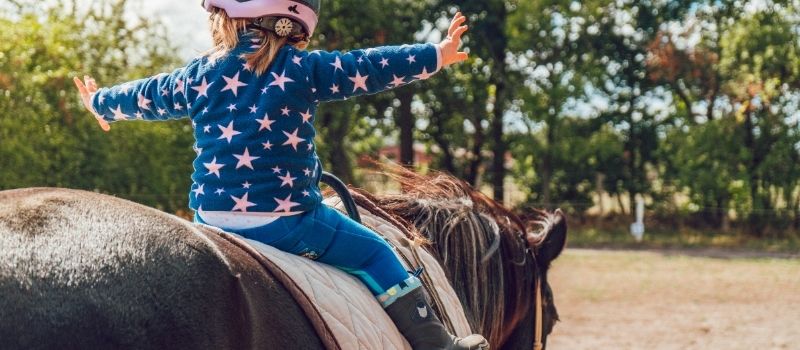
12 Apr
Unforgettable Italian Proverbs with Animals
Non menare il can per l’aia, you can learn with us the 20 funniest and most useful Italian sayings with animals.
Italian proverbs and sayings are the most vital feature of a language. Recognizing them in a sentence and knowing how to use them at the right time represents a turning point for every language enthusiast.
Knowing the Italian sayings means not only having good lexical knowledge but also knowing how to grasp the most interesting nuances of the Italian language.
They are the most colourful and fun expressions because they are often expressed in metaphor, with analogies or in rhyme and suggest bizarre images. Sayings can also offer norms or advice that come from popular wisdom and therefore express common sense.
The Italian language is full of Italian proverbs with animals, here are the funniest.
Most common Italian Sayings related to Animals
1.Menare il can per l’aia
What does it mean? Talking for a long time without coming to a conclusion. Although it has two terms that are quite obsolete in contemporary Italian (menare = lead; aia = farmyard), it is a still widely used expression.
How to use it? You can use it when you feel that a person is rambling or changes the subject because he/she doesn’t want to answer a specific question. You can say: “Non menare il can per l’aia/Don’t beat the bush” to encourage the interlocutor to conclude the speech effectively.
2. Can che abbaia non morde.
What does it mean? Lit. Dog that bark does not bite meaning threats are not as dangerous as they seem
How to use it? To play down a situation or reassure someone. “Don’t worry if Luca is always grumbling, can che abbaia non morde.”
3. Essere a cavallo.
What does it mean? Being well advanced, having overcome a problem.
How to use it ? When you can use Italian proverbs with animals properly, you will be a cavallo in the study of Italian!
4. A caval donato non si guarda in bocca
What does it mean? Gifts should always be appreciated, without arguing or thinking about its actual value. It comes from the ancient custom of looking at a horse’s teeth to find out its state of health.
How to use it? When a friend complains about birthday gifts, say “a caval donato non si guarda in bocca”.
5. Andare a letto con le galline.
What does it mean? Go to bed early.
How to use it? If they say “I don’t know how Elena gets up every morning at 6.00 a.m” you can answer “No wonder, she va a letto con le galline!”
6. La gallina dalle uova d’oro.
What does it mean? It is said of a lucky person, an inexhaustible source of wealth. It comes from Aesop’s fable.
How to use it? If you know someone who turns every situation into an opportunity that brings you benefits, here there is your gallina dalle uova d’oro.
7. Gallina che canta ha fatto l’uovo.
What does it mean? The first to report a negative fact is probably the person responsible.
How to use it? If in a group you ask “who finished the cookies?” they will probably tell you that you finished them, gallina che canta ha fatto l’uovo.
8. Non c’è trippa per gatti.
What does it mean? You can’t always get what you want.
How to use it? When you would like to get a discount at the local food market, but you are told “non c’è trippa per gatti.“.
9. Il lupo perde il pelo ma non il vizio
What does it mean? Over time you can change outwardly but keep the same habits.
How to use it? To refer to a habit that you would like to change but cannot eliminate. “I never remember where I put my glasses. Il lupo perde il pelo ma non il vizio.
10. Come un elefante in una cristalleria
What does it mean? Don’t be very delicate in saying and doing things.
How to use it? When a person does not understand the situation he/she is in and acts tactless “We told her it was a delicate situation, but she went to the meeting come un elefante in una cristalleria.”
11. Chi dorme non piglia pesci.
What does it mean? Nothing happens without commitment.
How to use it? If you are going through a period with low motivation and you are unable to commit yourself to the study of the Italian language, remember that Chi dorme non piglia pesci., try our online Italian courses to find the right stimuli.
12. Non sapere che pesci pigliare.
What does it mean? Being indecisive and not knowing what decision to make.
How to use it? For those who find it hard to make a decision “Luca has not yet chosen which university to go to, non sa che pesci pigliare.”
13. Fare le pulci.
What does it mean? Being very fussy, even in an irritating way.
How to use it? To refer to a very fussy person: “my grandmother is terrible, every time I prepare lasagna for her she always fa le pulci“.
14. Mettere la pulce nell’orecchio
What does it mean? Stimulate an idea or a doubt.
How to use it? it is a useful expression to indicate an idea that is forming: “I had never thought of taking a dance class, but the example of Marianna mi ha messo la pulce nell’orecchio, maybe I am joining too.”
15. Una rondine non fa primavera.
What does it mean? Good news is not enough to indicate that a situation is about to improve.
How to use it? Even if you’ve made a shot with the crumpled paper, it doesn’t mean you’ve become an NBA champion. Una rondine non fa primavera.
16. Tagliare la testa al toro
What does it mean? Resolve an issue resolutely.
How to use it? Instead of creating online questionnaires to decide the data for a meeting, tagliare la testa al toro and suggest a single date.
17. Mettere il carro davanti ai buoi
What does it mean? Being hasty, doing things in the wrong order.
How to use it? Non stai mettendo il carro davanti ai buoi by organizing the graduation party before you finish your thesis?
18. Sputare il rospo
What does it mean? Confess, be blunt, or ask someone to be.
How to use it? This expression is useful when you want to urge an undecided person to be honest: sputa il rospo and you’ll feel better.
19. Salvare capra e cavoli
What does it mean? Safeguarding two apparently irreconcilable objectives. It comes from a famous logic game.
How to use it? If you had to choose between a yoga class and a walk in the park, with a yoga class in the park avrai salvato capra e cavoli.
20. Fare lo struzzo
What does it mean? Ignoring a problem, hoping that it will resolve itself or that someone else will take care of it.
How to use it? If your laundry basket has become a mountain, non fare lo struzzo, take your responsibilities and do the laundry!
Did you enjoy ELLCI selection of Italian proverbs and sayings with animals? Keep reading tongue-twisters: learning Italian having some fun
